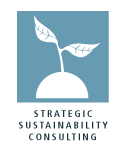Employee volunteer programs are a great way to boost employee morale and enhance your organization's reputation in the local community. Today, more than 90% of Fortune 500 companies have employee volunteer programs, and an increasing number of small and medium size businesses are discovering the myriad benefits that these initiatives can have.
So if you're thinking about developing an employee volunteer program, or want to make sure you're getting the most of your existing programs, consider the following:
Aligning volunteerism with your business mission.
There is absolutely no reason that employee volunteerism can't grow organically—driven by staff interests. And if you have employees asking for company support for a 5K charity run, a bake sale, or a clothing drive for the homeless, then go for it.
But if you're in the process of developing a volunteer program from the ground up, make sure the program is aligned with your business's mission. From a marketing standpoint, it's a smart decision—and it can give your employees a chance to use their business skills for good. For example:
¨ If you are a bank, set up an employee volunteer program where staff provide financial advice to low income women, or provide victims of domestic violence with advice on how to become financially self-sufficient.
¨ If you are a restaurant, consider ways to donate your left-over food to a homeless shelter. Or arrange to have employees deliver meals to families with a seriously-ill child in the hospital.
¨ If you are in a hi-tech firm, develop a mentoring program to encourage minorities to pursue engineering degrees. Talk to a local high school or community college and see if there are ways to match students with employees for short 2-4 week after-school projects.
Generating employee participation.
One thing that drives me crazy is companies who tout their great employee volunteer programs, but provide little incentive to those staff that choose to pursue volunteer opportunities. It's great when workers are willing to go the extra mile for a good cause, but companies—with very little effort—can make it easier to do the right thing. Try the following:
¨ Give employees paid time off to volunteer. Allowing employees to take an afternoon (or even a full day) every month to pursue volunteer activities is probably the most effective incentive to increase employee volunteerism.
¨ Recognize employee volunteerism with awards. A little recognition goes a long way, and publicly recognizing employees who contribute back to the local community is a great way to showcase their efforts. Make it part of your quarterly report to shareholders, or a component of your annual holiday party.
¨ Tie it in to job descriptions and performance reviews. Encourage staff to find creative ways to give back to the community by creating financial incentives. This not only demonstrates your commitment to employee volunteerism, but also makes it easier for workers on a tight budget to rationalize time away from the job pursuing volunteer opportunities.
Tracking your progress.
Last week the Corporate Community Involvement Summit, a coalition of nonprofit organizations, announced the development of standards for corporate volunteer reporting. These standards will help to track trends, benchmark programs, and encourage better practices in employee volunteer programs. The Corporate Volunteer Reporting Standards can be used to:
¨ Establish a common baseline for benchmarking;
¨ Encourage greater corporate community involvement;
¨ Enable consistent comparisons and common reporting;
¨ Elevate the internal dialog on employee volunteer programs to communicate more effectively the internal and external corporate benefits; and
¨ Facilitate the use of better employee volunteer program practices.
Want to learn more about setting up (or improving) your employee volunteer program? Email me at Jennifer@sustainabilityconsulting.com for a complimentary consultation!
.gif)